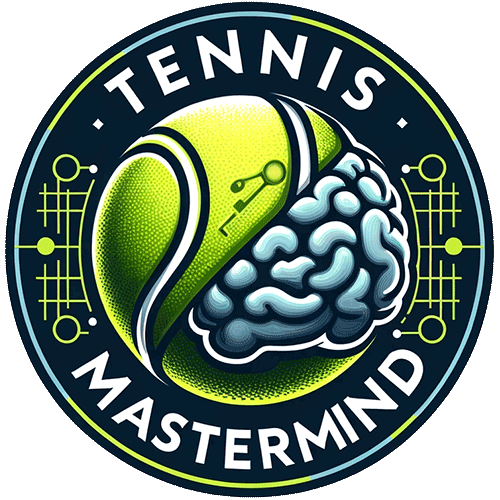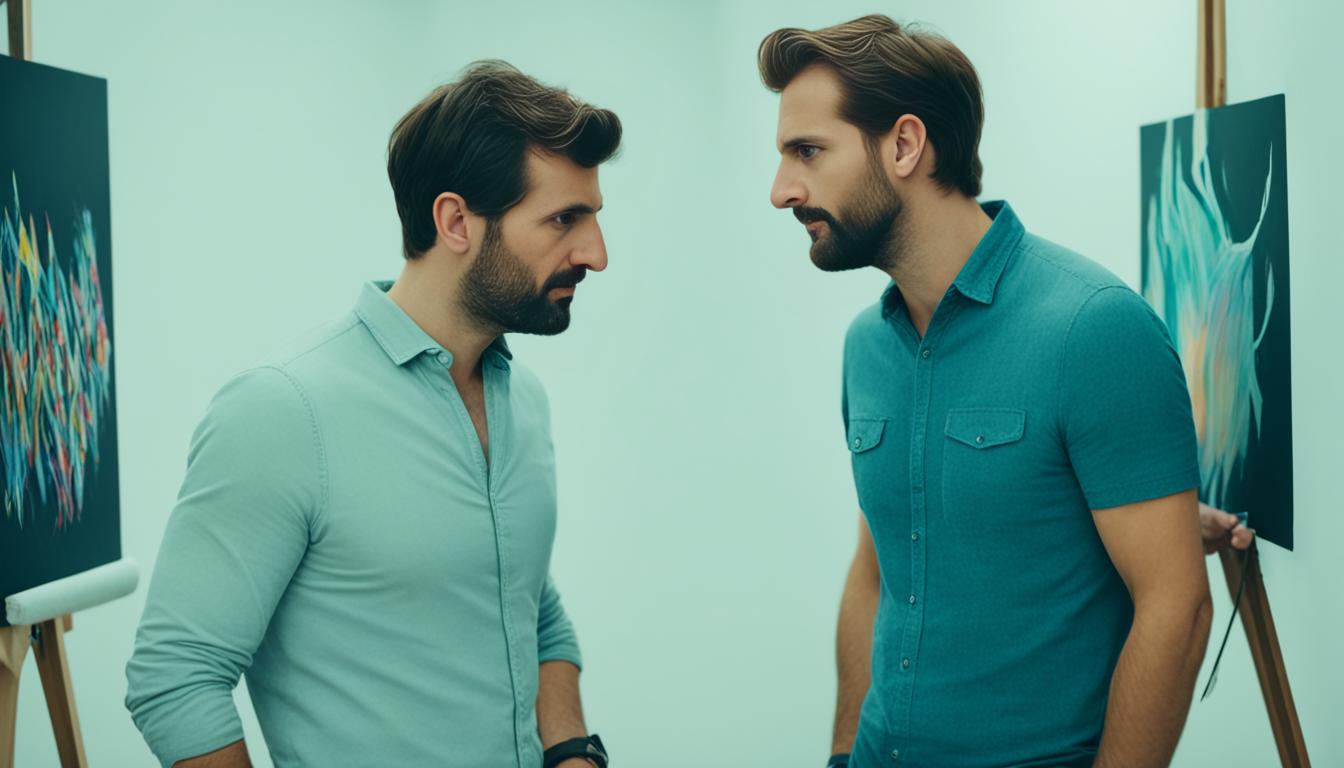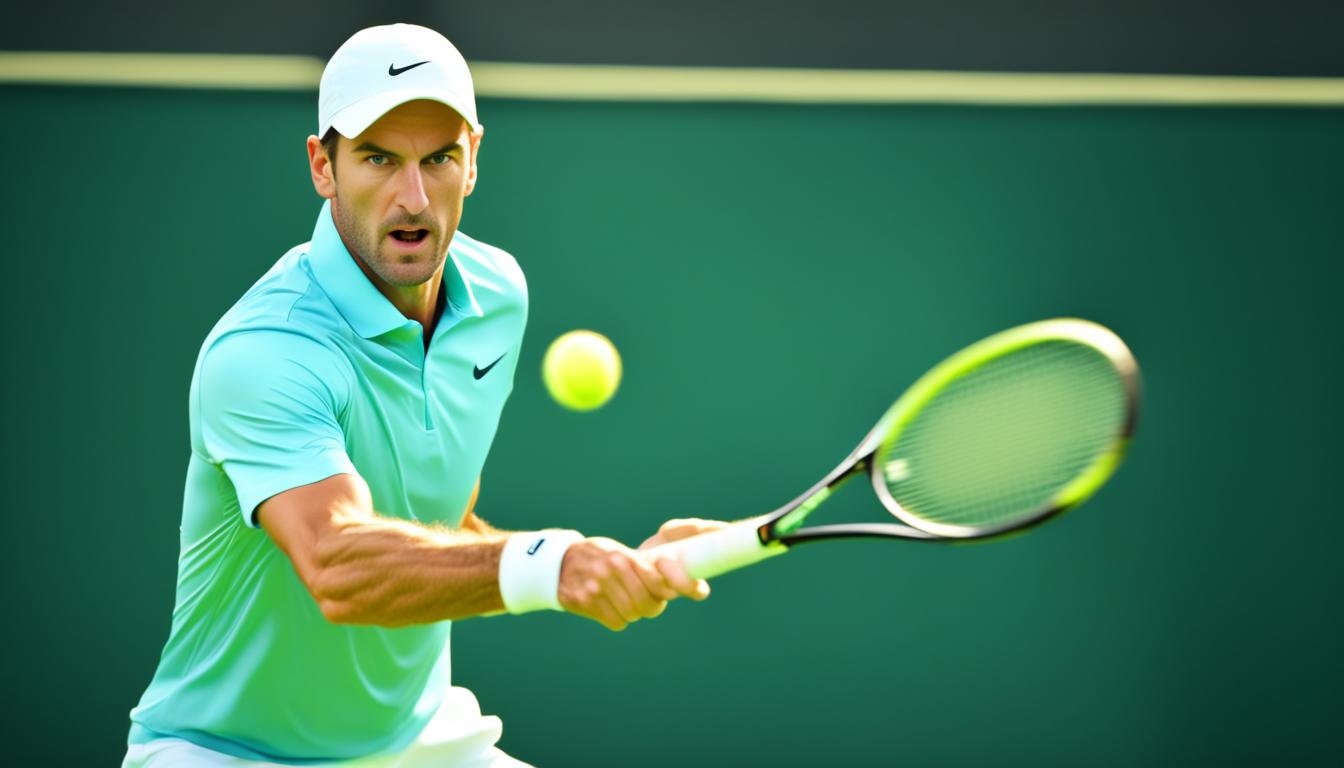In the world of tennis, there is much more to success than just physically mastering the game. While refining stroke mechanics and technique is crucial, it is equally important to understand and harness the power of the mental game. In this article, we will explore the mental aspects of tennis technique and how they can give players a winning edge on the court.
When it comes to tournaments and competitive matches, having the right mindset is key. Too often, players become fixated on perfecting their mechanics, but this can actually hinder their performance. Instead of overthinking every aspect of their technique, players need to shift their focus to developing a performance mindset. By doing so, they can unleash their true potential and fully engage in the strategy and psychology of tennis.
So, how do players win the mental game of tennis? It starts with recognizing that mental strength is just as important as physical prowess. The best players in the world understand that tennis is not just about hitting the ball; it’s about staying mentally tough, focused, and confident throughout each match.
To build mental toughness in tennis, players need to train their minds just as they train their bodies. By developing skills such as staying present, managing emotions, and maintaining a positive mindset, players can enhance their mental game and perform at their best, no matter the circumstances.
Many successful tennis players serve as shining examples of mental fortitude and resilience. Players like Rafael Nadal, Roger Federer, and Novak Djokovic have mastered the art of staying focused and blocking out distractions, even in the most challenging situations. By studying their approaches and strategies, aspiring tennis players can gain valuable insights and improve their own mental game.
The mental aspects of tennis technique are not to be underestimated. While perfecting stroke mechanics is important, it is equally vital to develop a robust mental game. By adopting a performance mindset, building mental toughness, and learning from the best, players can elevate their game and conquer the mental game of tennis.
Key Takeaways:
- Developing a performance mindset is crucial for success in tennis.
- Mental strength and toughness are just as important as physical skills.
- Training the mind through techniques like visualization and positive self-talk can enhance performance.
- Studying and learning from mentally strong players can improve one’s own mental game.
- The mental aspects of tennis technique give players a competitive edge.
The Importance of Mental Strength in Tennis
Tennis is a sport that requires not only physical prowess but also mental strength. The ability to maintain focus, handle pressure, and stay confident can make all the difference on the court. In fact, the mental side of tennis is just as important as the physical, tactical, and technical aspects of the game.
Developing mental toughness in tennis involves several key factors. One of the crucial elements is staying focused on what’s important during a match. This means letting go of past mistakes and future worries, and instead, remaining present in the current moment. Being mentally engaged allows players to make better decisions and execute their shots with precision.
Avoiding distractions is another aspect of mental strength in tennis. Whether it’s crowd noise, opponent’s gamesmanship, or personal doubts, staying mentally tough requires the ability to block out distractions and stay focused on the task at hand. This enables players to stay in their flow state and perform at their best.
Furthermore, maintaining confidence is essential in overcoming challenges on the tennis court. Confidence can be the difference-maker between hitting a successful shot and letting doubt creep in. Mental toughness allows players to trust their abilities and make bold plays under pressure, increasing their chances of success.
“The mental game is what separates the good players from the great players.” – Serena Williams
Winners in tennis possess a strong mind that empowers them to perform at their best. Mental training for tennis, including exercises such as visualization, positive self-talk, and mindfulness, can help players develop the mental strength necessary to excel in the sport. By strengthening their tennis mindset, players can elevate their performance and achieve their goals on the court.
Strategies for Building Mental Toughness in Tennis
Building mental toughness in tennis requires training the mind just like any other aspect of the game. While physical skills and technical abilities are important, having a strong mental game can make a significant difference in a player’s performance on the court.
One key aspect of developing mental toughness is staying present and focused on the current moment. It’s easy to get caught up in past mistakes or worry about future outcomes, but this can distract players from giving their best in the present. By practicing mindfulness and maintaining a focus on the here and now, players can improve their ability to make quick decisions and effectively respond to the challenges they face.
Visualization: The Power of the Mind
One powerful psychological technique for tennis is visualization. By imagining themselves executing successful shots and winning points, players can train their minds to be more confident and capable on the court. Visualizing success can enhance muscle memory and boost self-belief, leading to improved performance in real matches.
“Visualization is an incredibly effective tool in tennis. When I close my eyes and see the perfect serve or the winning shot, I can feel the confidence coursing through my veins. It’s like a mental rehearsal that prepares me to step onto the court and dominate my opponents.” – Serena Williams
Another important aspect of mental skills training is positive self-talk. By replacing negative thoughts and doubts with positive affirmations and encouragement, players can build resilience and self-assurance. Positive self-talk can help players stay focused, motivated, and confident, even in the face of adversity.
Managing emotions is also essential for developing mental toughness. Tennis is an emotionally intense sport, and the ability to stay calm and composed under pressure can greatly influence performance. By using techniques such as deep breathing, visualization, and self-regulation strategies, players can effectively manage their emotions and prevent them from negatively impacting their game.
By incorporating these psychological techniques into their training and practice routines, tennis players can enhance their mental skills and improve their overall performance on the court. Mental toughness is not something that can be developed overnight; it requires consistent effort, dedication, and perseverance. With time and practice, players can cultivate a strong mind that complements their physical abilities and gives them a competitive edge.
Examples of Mentally Strong Tennis Players
When it comes to tennis, mental strength is a key factor in determining success on the court. Many renowned tennis players, such as Rafael Nadal, Roger Federer, and Novak Djokovic, have demonstrated exceptional mental fortitude in their careers. These players serve as prime examples of how a strong mental game can elevate performance and help overcome challenges. Let’s take a closer look at their psychological prowess and what aspiring tennis players can learn from them.
Rafael Nadal, known for his fierce competitiveness and unwavering determination, exemplifies mental strength in tennis. Regardless of the situation, Nadal maintains a laser-like focus on his game plan, often blocking out distractions with remarkable precision. His ability to stay mentally composed under pressure has propelled him to countless victories on both clay and hard courts.
Roger Federer, considered one of the greatest tennis players of all time, is revered not only for his technical finesse but also for his mental toughness. Federer’s calm and composed demeanor on the court is a testament to his ability to remain unfazed by external factors. This mental resilience allows him to make quick decisions, adapt to different game situations, and deliver stunning shots under pressure.
Novak Djokovic, a player renowned for his mental fortitude and mental conditioning, has proven time and again that a strong mind can be a game-changer. Djokovic’s mental resilience enables him to recover quickly from setbacks, stay focused amidst distractions, and maintain his confidence even in the face of adversity. His ability to stay mentally strong throughout long matches gives him a significant advantage over his opponents.
“Tennis matches are often won or lost in the mind, not just by who hits the ball better. Our mental state and ability to stay focused, confident, and composed play a crucial role in determining our performance on the court.”
Studying the mental strategies and approaches of these mentally strong tennis players can offer valuable insights to aspiring athletes seeking to enhance their own mental game. By emulating their mental focus, resilience, and ability to adapt, players can elevate their performance and overcome mental barriers that may impede their progress.
Key takeaways from mentally strong tennis players:
- Stay laser-focused on your game plan, regardless of distractions.
- Maintain composure and stay calm under pressure.
- Develop mental resilience to bounce back quickly from setbacks.
- Embrace challenges as opportunities for growth.
- Stay confident in your abilities, even when faced with adversity.
Finding inspiration in the mental strategies of these tennis champions can improve a player’s overall performance and help them unlock their full potential on the court.

Conclusion
The mental aspects of tennis technique are instrumental in achieving success on the court. While honing stroke mechanics is undoubtedly important, fixating too much on them during tournaments can be counterproductive. Instead, developing a performance mindset, remaining present, and cultivating mental toughness are essential for winning the mental game in tennis. By training our minds and adopting strategies used by top players, we can improve our own mental game and gain a competitive edge on the tennis court.
It’s crucial to recognize that tennis is not just about physical skills; mental strength plays a pivotal role in determining victory. Top tennis players like Rafael Nadal, Roger Federer, and Novak Djokovic showcase exceptional mental fortitude on the court, enabling them to stay focused on their game plan and block out distractions even in challenging situations. Their mental toughness empowers them to perform at their peak despite external factors. By studying and learning from the mental strategies employed by these elite athletes, we can elevate our own mental game and enhance our overall performance.
To triumph in the mental game of tennis, it is imperative to prioritize developing a performance mindset. This entails shifting our focus from overanalyzing stroke mechanics to playing intuitively and strategically. Additionally, staying present in the present moment and managing our emotions are important aspects of mental training. Techniques such as visualization, positive self-talk, and emotional regulation can significantly enhance our mental strength and resilience on the court. By dedicating time and effort to conditioning our minds, we can unlock our full potential and achieve success in the highly demanding sport of tennis.
In conclusion, winning the mental game in tennis requires a comprehensive approach that integrates the mental aspects of technique with physical and tactical skills. As players, we must strike a balance between perfecting our stroke mechanics and developing a performance mindset. By prioritizing mental training, adopting the strategies of top players, and harnessing our own mental toughness, we can elevate our tennis performance and maximize our chances of success on the court.




